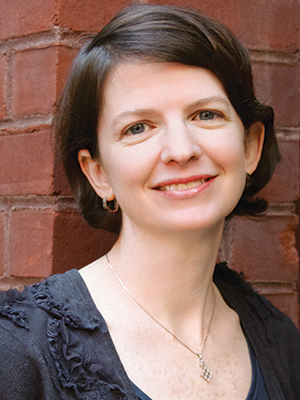
Jessica Gorman Photo by Kristen S. Gorman
WHEN JEN SINGER was diagnosed with lymphoma in 2007, she wanted to learn everything about her cancer. But there was something else the young mother needed to know: how her cancer diagnosis and treatment would affect her boys, Christopher and Nicholas. What should she tell them? How would she take care of them? And how were other parents dealing with the competing demands of treatment and parenting?
Singer knew that there were plenty of other parents out there with the wisdom that comes from this experience, but she couldn’t find them—the resources for young families facing a parent’s cancer diagnosis were few and far between.
The information vacuum that Singer encountered as a new patient was one that my parents faced as well. Twenty years ago, when my mother was diagnosed with colorectal cancer, she was raising five children, 8 to 18, and there were few places for her to turn to learn how to talk to us about her cancer. It wasn’t until after the birth of my own daughter, more than a decade after my mother’s death, that I fully grasped just how challenging must have been the demands—physically, emotionally and logistically—that she and my father faced. Our article by Jen A. Miller explores those challenges and offers age-by-age guidelines for talking to your kids. We also point you toward services—including a website Singer launched—that can serve as points of light in this frightening and difficult situation.
This is just one of the many pieces in this issue of Cancer Today that aim to demystify the latest advances in cancer support, care or research. Other articles take on topics that include the substandard cancer treatment encountered by many black patients, new efforts to understand and stop metastases, the latest recommendations and research on HPV, and attempts to make clinical trials more efficient. We’ve also packed this issue with expert advice: on cancer screening, hospice care, pediatric cancer support, and readers’ questions about financial and work-related issues.
I hope that this issue will provide you with the tools and guidance to better understand your cancer, your medical care and the voluminous new support services that are available to assist you—or your loved one. Today, cancer is “out in the open,” as we say in our “Parenting With Cancer” story. But sometimes having too much information is as hard as not having enough. Our goal is to cut through the noise to give you what you need. Please let us know how we’re doing.
Cancer Today magazine is free to cancer patients, survivors and caregivers who live in the U.S. Subscribe here to receive four issues per year.




